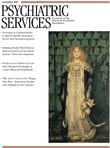For those of us whose children have passed adolescence and whose practices allow for only fleeting visits from adolescents in crisis, this book is a refreshing reminder of the nonpathlogical love obsession and search for identity that can make adolescence a time to be relished.
The story is told through the eyes of a 17-year-old boy, the only child of a professorial American father and an Italian mother. The protagonist, Elio, is brilliant and knowledgeable about music, history, classics, and visual arts. He readily plays tunes on the piano in the style of Bach or Brahms. Elio is beloved and trusted by his parents, who are well enough off that they summer in a villa on an Italian coast and have several servants.
Each summer Elio's father invites a scholar to spend the summer months in a room next to Elio's. This summer, the occupant is 24-year-old Oliver, already an assistant professor at Columbia, who has come to work on his book about the Greek philosopher Heraclitus, who taught of change and transformation. Heraclitus wrote, "No man steps in the same river twice, for it is not the same river and he is not the same man."
The story starts with first impressions and builds through Elio's attraction to the very attractive Oliver. It begins with Elio's observation about Oliver's soft white skin and goes to his observations of Oliver's easy confidence in correcting his father whom Oliver casually calls "Pro." Elio lingers in many states of passionate obsession that are recorded in his diary and in chance remarks, eventually speaks to Oliver directly, and then suffers the uncertainty of Oliver's response.
Call Me by Your Name is not about homosexuality, though the lovers are men. Each has relationships with women. The book is about an adolescent obsession and admiration for an older person that begins as an ego ideal and then becomes a stronger passion. That passion propels a desire to be like that person and a desire to be that person. Both desires become sexualized, because wanting to be the person involves getting under his skin and into his body. In this story, the culmination of this imperative intimacy is the demand to "call me by your name."
Elio and Oliver's relationship is the kind of relationship that shapes one's identity and is forever memorable as the ideal. Is this what all adolescents experience on their way to forming a personal identity and engaging in adult intimacy? Perhaps as an epic represents "everyman's" experience, yes.
Author André Aciman was born in Egypt to a Sephardic Jewish family holding Turkish nationality. His family moved to Rome when he was 14, and at 18 they moved to New York. He teaches at the Graduate Center of the University of New York. He is described as living in Manhattan with his family. His book is dedicated to Albio, "Alma de mi vida." If this book is biographical, we can wonder whether the author is represented as Elio or Oliver, or both.

